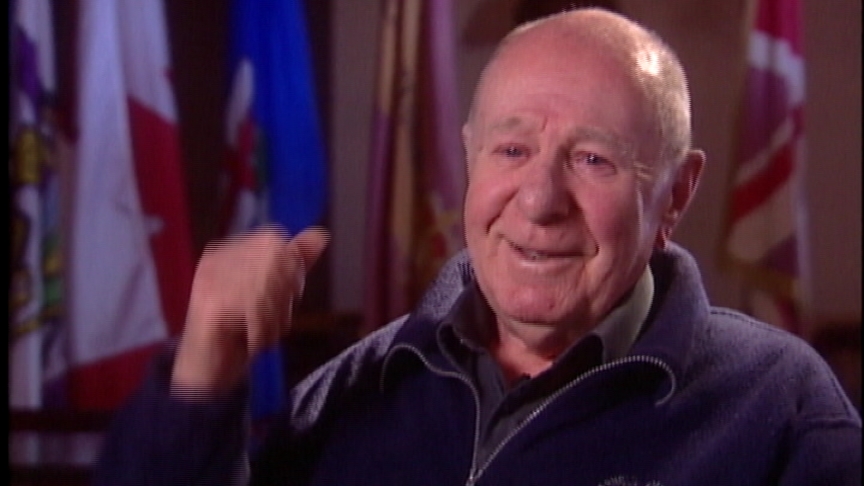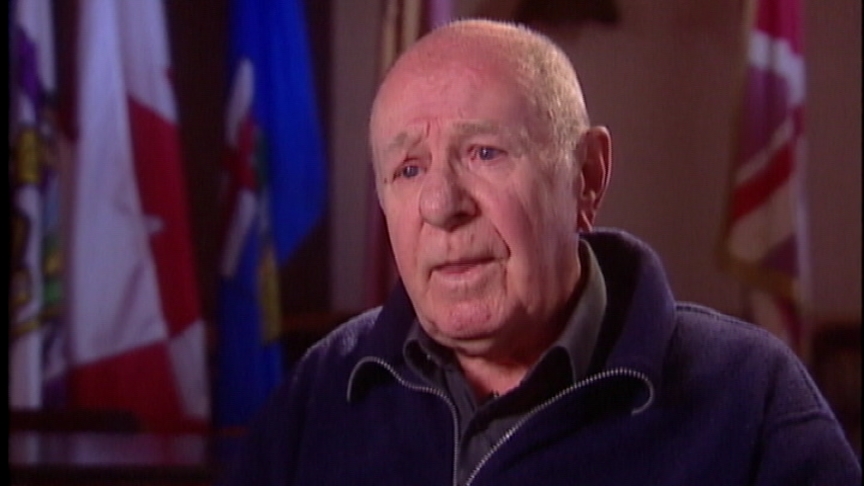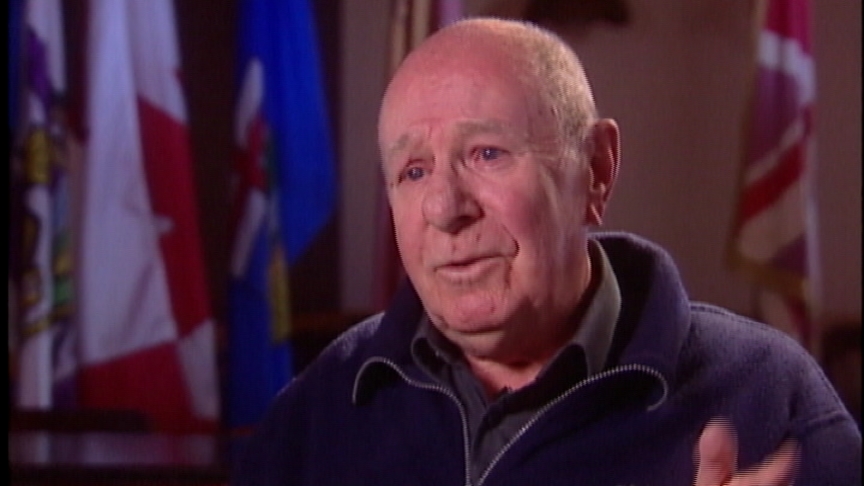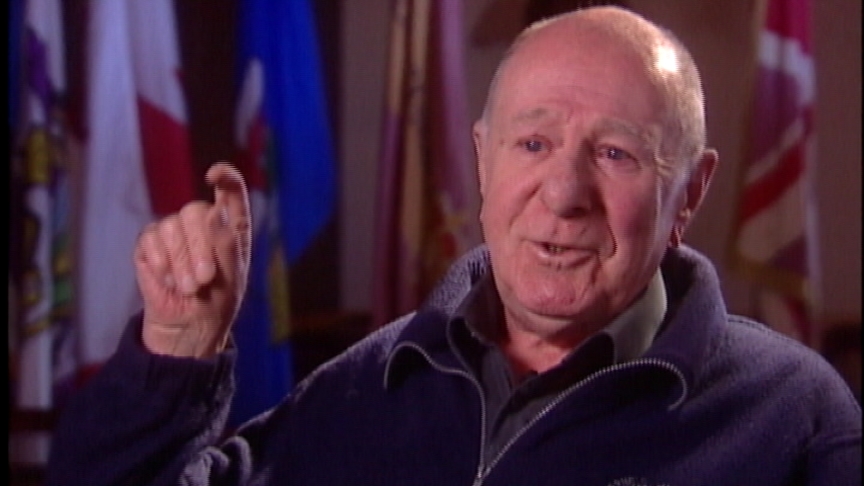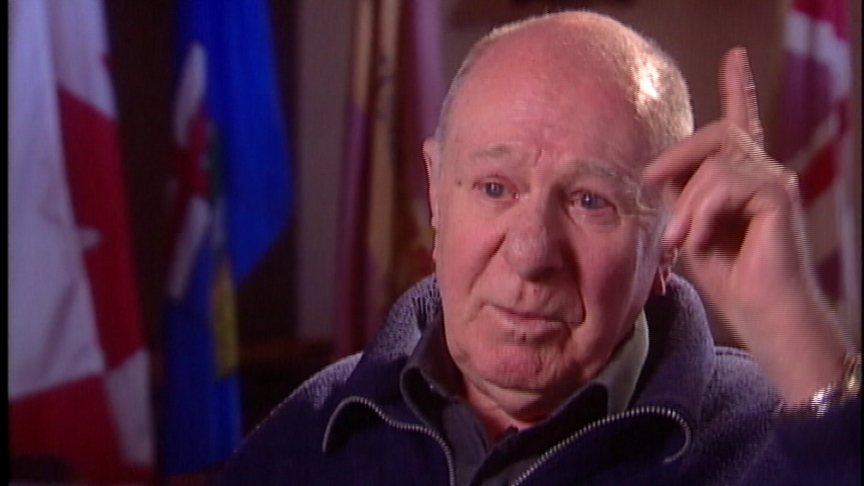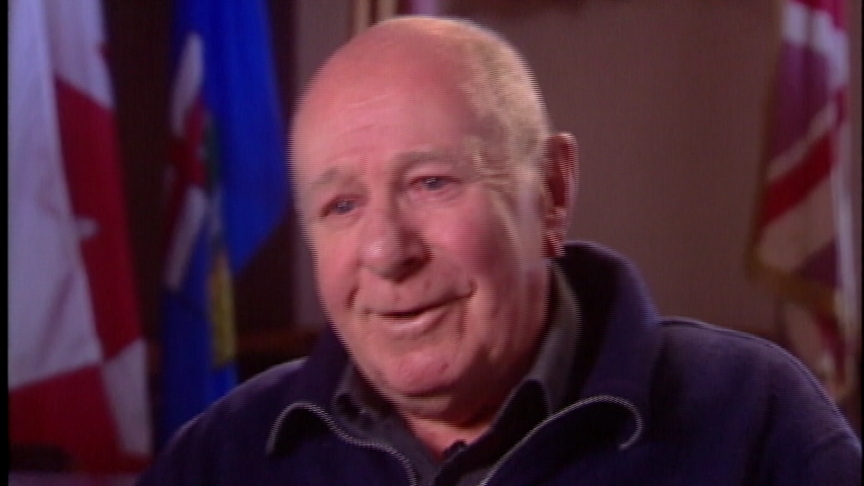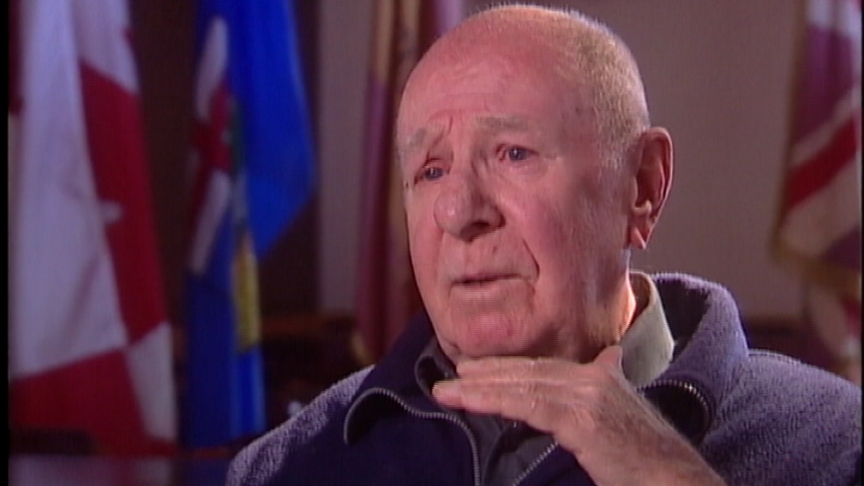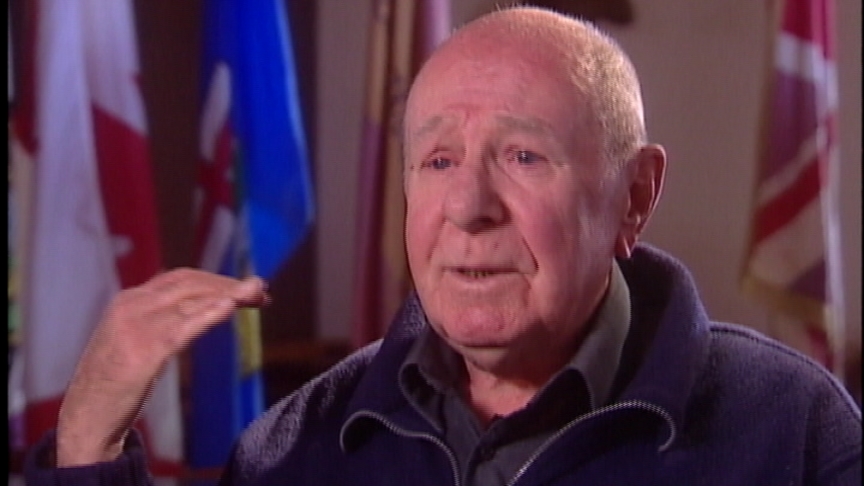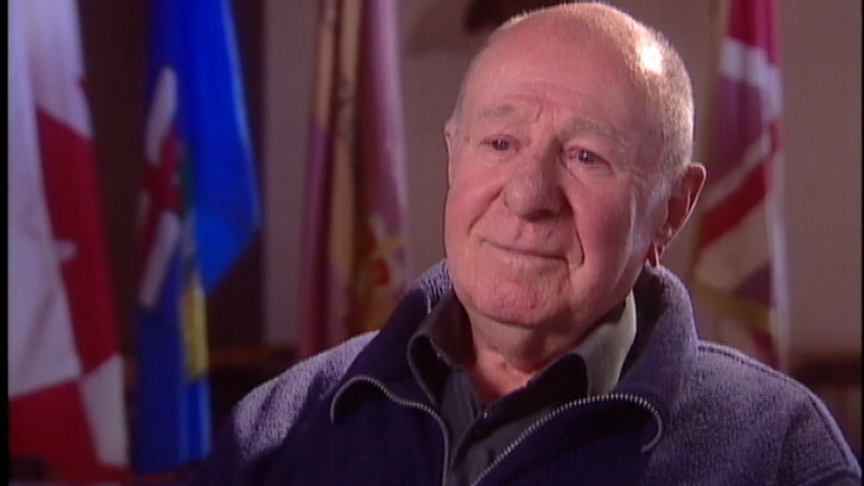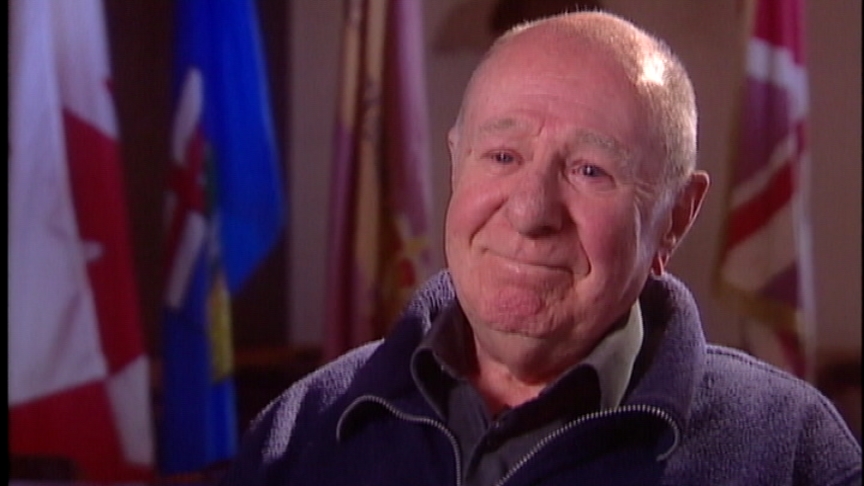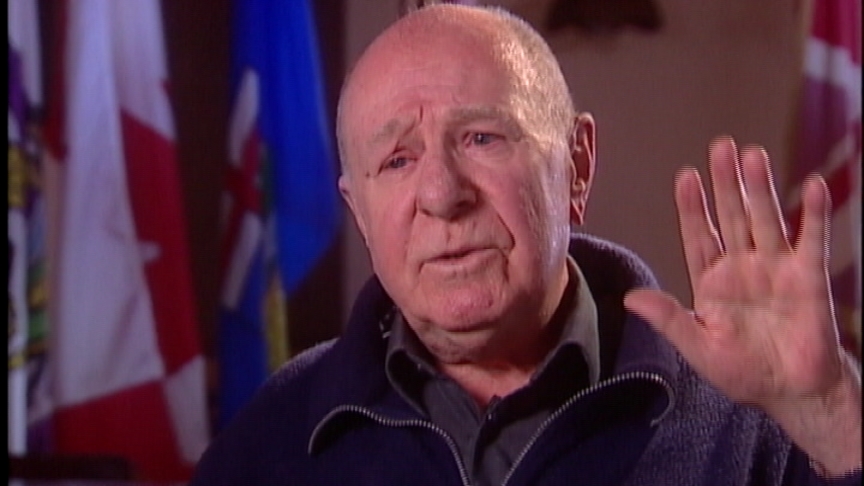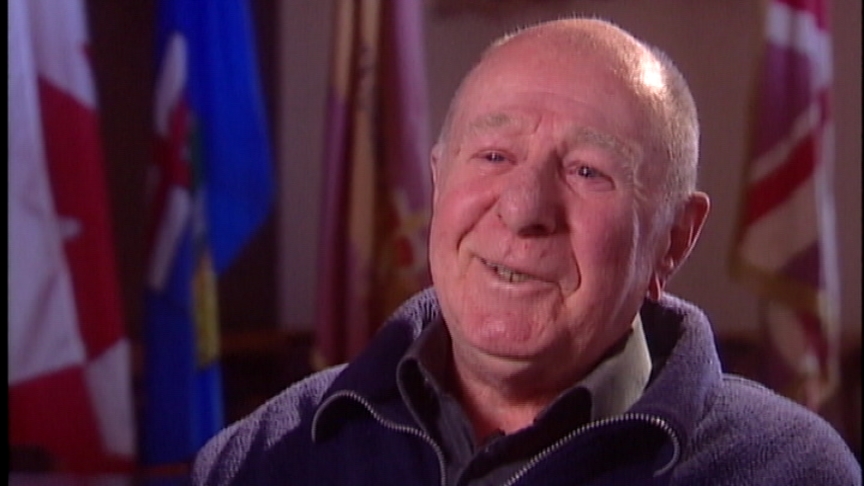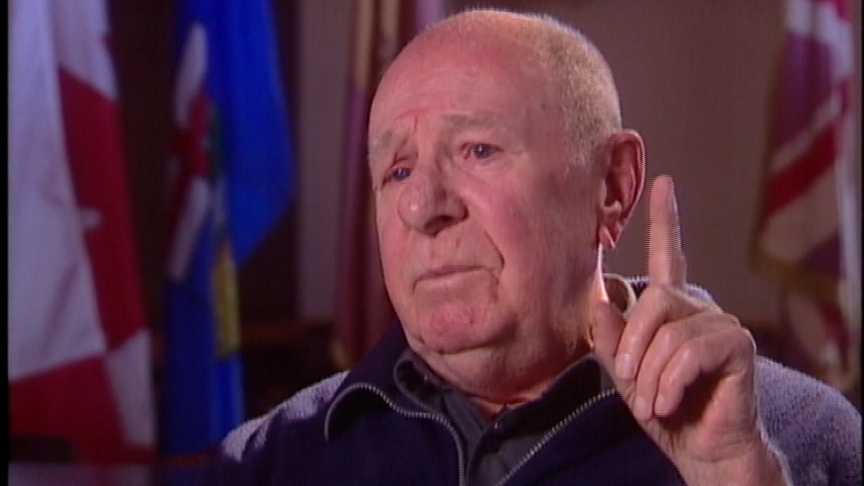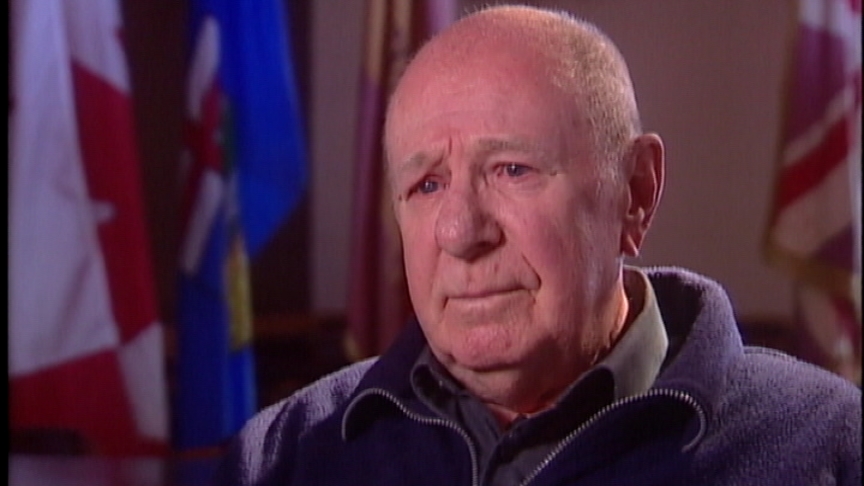Making Kai Tak Airport
Heroes Remember
Making Kai Tak Airport
Transcript
Description
Mr. McGee describes how 1,800 POWs had to take down two mountains with shovels and march to the ocean to dump each load.
John McGee
Mr. John McGee was born in Saskatchewan, on May 3, 1923, and comes from a family of two brothers and three sisters. He now resides in Edmonton, Alberta, with his wife and family. Mr. McGee joined the army and left for wartime service with a group of thirteen men. Although very excited to be going overseas, he recalls the sight of seeing young men jumping overboard when the ship began to sail; the fear of the unknown was causing many to turn back and stay at home! Mr. McGee was determined to go and serve his country. Mr. McGee shares with us his personal experience of being captured as a Hong Kong prisoner of war (POW) and hardships he endured at the camp. He considers himself very fortunate to be alive today, as many of his friends were left behind. After six years of serving in the army, Mr. McGee returned home to be what he terms an "Entrepreneur" buying a few hotels and later on getting into the sales business. Civilian life was a very positive outcome for a soldier who had endured such hard times and poor health during his time in the prisoner of war camps.
Meta Data
- Medium:
- Video
- Owner:
- Veterans Affairs Canada
- Duration:
- 02:36
- Person Interviewed:
- John McGee
- War, Conflict or Mission:
- Second World War
- Location/Theatre:
- Hong Kong
- Battle/Campaign:
- Hong Kong
- Branch:
- Army
- Units/Ship:
- Winnipeg Grenadiers
- Rank:
- Corporal
- Occupation:
- Infantry
Related Videos
- Date modified:



